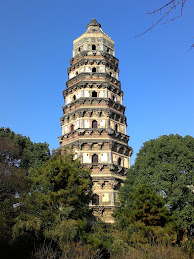上週二社會上爆發了一場語言、文化的激烈論戰,新聞的熱度至今未退。這個議題具有高度的政治性,我不擬介入;閩南語/台語、台灣文學/台語文學我也僅知一二,不好在這《語國一方》大放厥詞。
但我在備課時查閱了英語世界最大最全、14 巨冊的 Encyclopedia of Language & Linguistics, Second Edition, 2006 (《語言與語言學百科全書》第二版),讀到台灣語言現狀的專文 (Taiwan: Language Situation),作者是日本關西學院的 Joseph DeChicchis 教授。他在第一段的後三分之一處,似乎跳脫了學術上常見的客觀中性,寫出了隱含個人價值判斷的語句:
Some writers use the word 'Taiwanese' to refer to one of the languages of Taiwan; however, this usage is uninformed at best and chauvinistic at worst. [有些人用 "台語" 來指稱台灣的一種語言。然而,講得好聽一點,這種用法是所知不足,講得難聽一點,就是充滿了沙文主義。]

這個議題很值得探討,絕對是個博士論文的好題目,不同的觀點可能會得出不同的結論。中文的閩南語/台語我先不管,它的英文對應詞為何,我倒是比較感興趣。2011 年 3 月更新的 The Oxford English Dictionary Online (線上版《牛津英語詞典》) 記錄有案的是 Hokkien (為 "福建" 的音譯,英文發音為 [hoʊ 'kin]。按:Hokkien 之於閩南語,是不是跟 Taiwanese 之於台語一樣,也有點沙文?),不過卻查不到 Taiwanese "閩南語/台語" 的這個意思。然而我翻了其他的大型英語詞典,卻發現 Shorter Oxford English Dictionary, Sixth edition (《牛津英語詞典簡編》第六版) 、Random House (《藍登書屋》)、American Heritage (《美國傳統》) 均收有該義。
我 2011 年 5 月 31 下午 2:00 用英文版的 Google 上網搜尋,Hokkien 有 430 萬筆資料,遠遠高出另一個常用的 Southern Min (8 萬筆左右) 和其變體 South Min (2萬筆左右)。
Hokkien 這種說法對我們很多人來說可能有點陌生,但其使用之普遍深入、地位之穩固確立,殆無庸置疑。線上版《牛津英語詞典》的書證,還引用了 2003 年 8 月 10 日《紐約時報》對台灣導演楊德昌電影《一一》的影評:
Sitting through a three-hour movie, in Mandarin and Hokkien with subtitles, seemed more likely a chore than a pleasure.
事實雖然明擺在眼前,但用 Hokkien 來稱呼閩南語/台語,在台灣是個高度政治性的議題,短時間內大概不容易看得到。Taiwanese 雖然也有爭議,不過在這樣的政治氛圍與社會環境之下,或許還是能受到多數人的認可吧!
Hokkien, adj. and n.
Pronunciation: Brit. /həʊ 'kiːn/ , U.S. /hoʊ 'kin/
Forms: 18 Hok-Këèn, 18 Hok-Këen, 18 Hok-Keen, 18 Hokken, 18– Hok-kien, 18– Hokkien, 19– Hokkian.
Etymology: < Amoy hok kian.
A. adj. (attrib.).
1. Of, relating to, or designating a dialect of Southern Min traditionally spoken in south-eastern China, and now one of the major Chinese dialects of Malaysia, Singapore, Taiwan, and the Philippines. Cf. Min adj.3 and n.5
The northern and southern varieties of Hokkien together with Amoy form the subdialect Xiamen.
1832 W. H. Medhurst (title) A dictionary of the Hok-Këèn dialect of the Chinese language.
1841 J. Legge (title) A lexilogus of the English, Malay, and Chinese languages; comprehending the vernacular idioms of the last in the Hok-Keen and Canton dialects.
1893 R. Wallaschek Primitive Music vi. 185 In the native Hokken (Fo-kieen) pronouncing dictionaries, the Chinese characters are divided into eight classes to correspond with the number of tones.
1952 'Han Suyin' Many-splendoured Thing vii. 178 François shouted encouragement to the fishermen in French, and John Tam translated into Hokkien dialect.
2001 H. Chappell Chinese Grammar iii. 63 Evidence for the verbal origin of this marker can be found in a Spanish manuscript describing the grammar of a Southern Min or Hokkien dialect of the late sixteenth and early seventeenth centuries.
2. Of, relating to, or designating a member of a Chinese people traditionally inhabiting south-eastern China who speak a dialect of Southern Min, or their culture or cuisine.
1892 Times 8 July 7/6 Mr. Evans calls my attention to the traffic in Hokkien girls brought down and sold as household servants, and fears that they are virtually kept in a state of slavery.
1969 R. C. Bell Board & Table Games II. vi. 105 This popular Hokkien game for four players is played with a set of thirty-two Chinese dominoes.
1993 R. J. Antony et al. Secret Societies Reconsidered iv. 98 The colonial power felt more closely allied to the Hokkien mercantile community than to the Teochew traders and planters.
2004 Evening Standard (Nexis) 12 July 36 Also worth noting are the Nyonya fried rice and the 'hawker' meal-in-a-bowl dishes, such as the Penang Assam Laksa and the Hokkien Prawn Mee soup.
B. n.
1. The Hokkien dialect of Southern Min.
1865 Trans. Amer. Philos. Soc. 13 32 The mandarin word..becomes pak in Hok-Këen.
1957 M. Freedman Chinese Family & Marriage in Singapore 9 Of all the so-called Chinese dialects in use in Singapore Hokkien was the most common.
1970 R. Bruce Teach Yourself Cantonese 1 Hokkien is the speech of the Amoy and other places in South Fukien.
2003 N.Y. Times 10 Aug. 7/4 Sitting through a three-hour movie, in Mandarin and Hokkien with subtitles, seemed more likely a chore than a pleasure.
2. A member of the Hokkien people.
1895 Geogr. Jrnl. 3 290 The Chinese [in Singapore] are principally Tinchus or Taichus..; other clans or provinces are represented in the following order: Hokkiens, Kehs, and Macaos.
1927 R. J. H. Sidney In Brit. Malaya Today 144 A Hok-kien and a Teo-chew had a quarrel.
1978 Washington Post (Nexis) 1 Sept. A17, I had to speak Hokkien..because the majority of them were adult Hokkiens.
2003 New Straits Times (Malaysia) 21 Sept. 8 The Hokkiens have always been resourceful and entrepreneurial and since China's changed economic policy, Xiamen is a success story.


10 comments:
您是外省人吗?
在星、马一代,我们比较多称之为福建话,那些英文字典可能是根据星马情况而得,因为星、马曾是英属殖民地。
福州话、福清话、和兴华话等,就直接这样称之,不包括在我们定义中的福建话里。所以我们称的福建话只极限于闽南话。
閣下是新加坡還是馬來西亞的華人?謝謝你的評論。
這樣看來,在星馬兩地用 "福建話" (Hokkien) 來代表閩南話,跟台灣用 "台語" 代表閩南語,實有異曲同工之妙。
我是新加坡华人,常在星马走动。
Hokkien这词应该是从闽南音得来而写成英文的。
原来的系主任大教授,难怪学识颇深!赞!
我是嘿嘿,您太客气啦!就叫嘿嘿呗!呵呵~ 谢谢!
是的,第一次聽到Hokkien,是馬來西亞朋友用英文解釋她們講的家鄉話,馬來西亞和新加坡有很多華人是閩人後代,他們多不用閩南語這個稱呼,對這語言的名稱變成台語驚訝不已。問他們長輩哪裡人,多來自泉州,新加坡的中文譯音也多以閩南語來拼,因此Tan姓陳。
另外有個有趣的問題,很多台灣人以為香港人講的是香港話;而香港人則疑惑台灣會把閩南話稱作台語,香港人怎麼不把廣東話當作香港話呢。
想到一個問題,當初把大不列顛翻譯為英國,是不是當時來華多是英格蘭人呢(他們自稱English啊)?假如多是蘇格蘭人,會不會譯成蘇國呢?哈哈。
對不起,我話真多。
早期來台的廣東移民,有很多潮州人,潮州話跟閩南話音很接近,比較不同的是聲調起伏大一些,早年會從廣東來,可能是語言接近吧。
另外,在大陸遇過一個浙江人,他說他有遠親在台灣,不過不是國共內戰之後來的,是早年捕魚經商,有些浙江人會把台灣當轉運暫居的地方,福建人也會在浙江地區設據點轉運物資。到現在浙江省裡面還有一個區是講閩南話而不是浙江方言的,可能是早期來往頻繁的關係吧。
路人閣下,謝謝你的意見反饋。你的觀察和想法都很獨到,給我們開了另一扇窗。
語國一方需要多一點像你這樣的人,這裡才有生氣,才熱鬧。
老師您好, 我是從事5年全職譯者的讀者,正在進行一個案子時,看到您的blog, 有感而發. 最近發現在google查一些英譯用語時,海峽對岸與我們在某個詞上的英譯表達用法各有不同. 有些表達思維,在本人愚見認為,確比我們台灣的表達稍嫌不足. 其實內心感到有點無力. (果然人多還是有好處). 如今看到您在"閩南語/台語"的思考路徑,想加以效法. 也就是先以台灣人認同度為優先考量因素. 偶發靈感, 也很感謝您的分享.
Jill, 你好。謝謝你的支持與肯定,也祝你翻譯事業順利成功。
Post a Comment